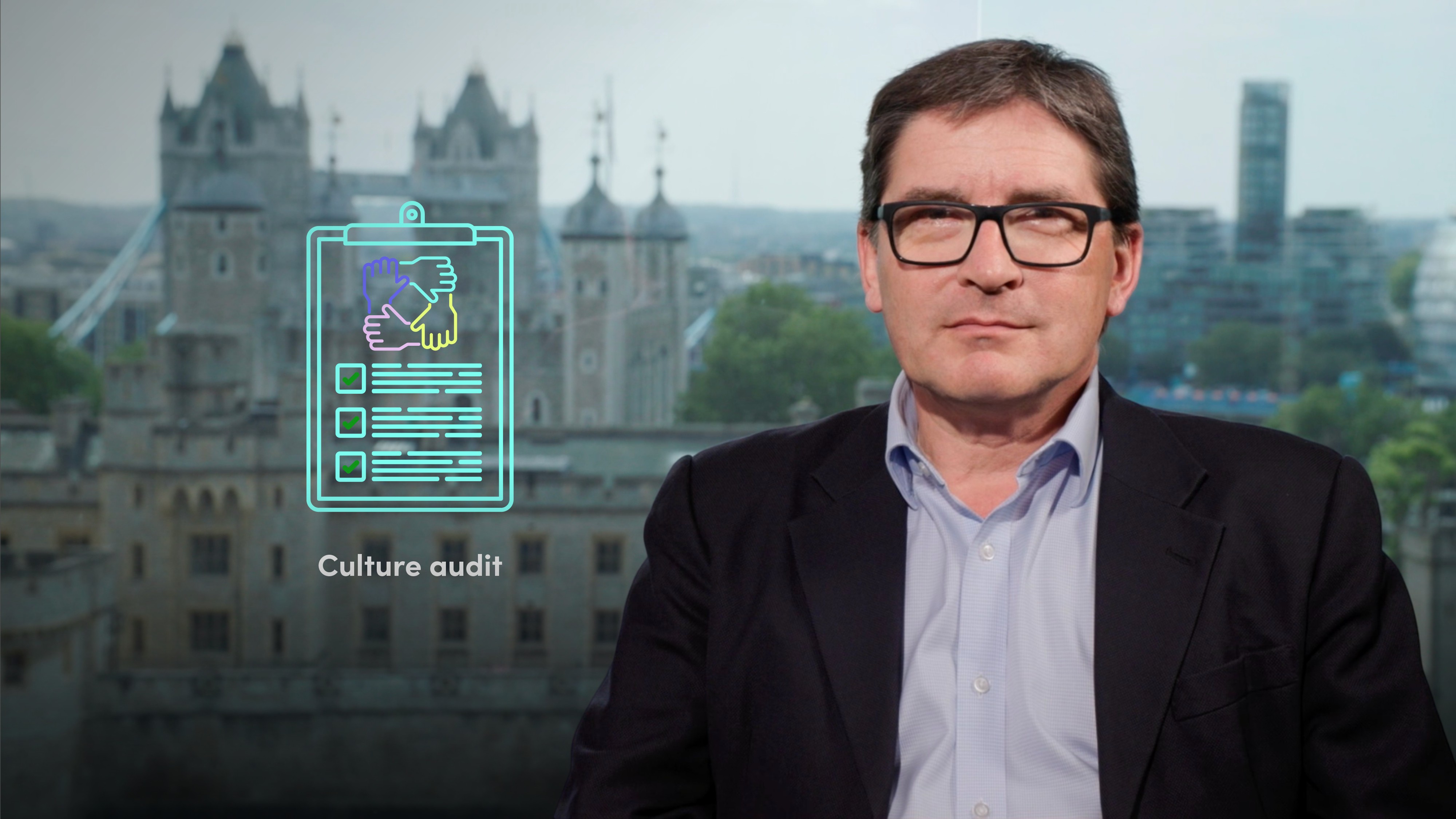
Introduction to Culture Audits

Roger Miles
25 years: Behavoural science & conduct
Conduct regulators are starting to request fresh evidence of good behaviour from regulated financial firms. Join Roger as he explains the benefits of businesses taking the new cultural reporting requirements on board.
Conduct regulators are starting to request fresh evidence of good behaviour from regulated financial firms. Join Roger as he explains the benefits of businesses taking the new cultural reporting requirements on board.

Introduction to Culture Audits
9 mins 57 secs
Key learning objectives:
Outline the concept of a culture audit
Learn about external pressures driving regulatory agendas
Understand why firms should respond to the challenge of new culture reporting requirements
Overview:
Regulators are asking financial firms to produce new evidence that they are behaving well. They want all staff to actively take part in discussions about "what good behaviour looks like" and to stamp out misconduct in all its forms. This includes both behaviour relating to a firm's business operations, such as the mis-selling of financial products, and more interpersonal matters like abusive behaviours towards customers and colleagues. Observing this behaviour will take the form of a culture audit, which goes much further into how a firm operates than a conventional audit.
What are some external pressures driving regulatory agendas?
- Public pressure
There's a rising public expectation that managers in financial firms need to be quicker to identify and remedy problems, so as to prevent any new occurrence of past misconduct. On this subject, you will no doubt be aware of the huge impact of movements such as #metoo and #blacklivesmatter in changing public attitudes towards diversity and inclusion. - More watchful regulators
The early regime of "gentle influence" that regulators had on businesses has given way to strict oversight and enforcement. The front-line employees of financial firms will now be directly interviewed, surveyed, and observed by the conduct regulators' behavioural experts. These cultural evaluations could uncover problems that even a company's own management was not aware of, and no company wants to find itself in that situation. - The gig economy
Employers' and employees' "assumed loyalty" is no longer a standard we can take for granted. Public concerns about employer behaviour have also been sparked by the shift toward less stable employment contracts brought on by the emergence of the "gig economy." Because of this, it is crucial that financial firms actively work to raise employee engagement as a part of a wider culture assessment. - Reputation risk rating
There are now public web forums critiquing companies for their standards of service, behaviour and ethical conduct. DidTheyHelp.com and ViolationTracker host honest, frank, un-spun insights into a company's culture, conduct and history of infractions. As with any consumer review, these views may not be entirely accurate in all cases, but senior business leaders should never ignore such data. - Recruitment and retention
The financial sector can no longer count on getting the first pick of the best and brightest and best candidates. Young job applicants are now quick to judge any firm on its ethical conduct and reputation. Firms need to respond positively by providing a better ethical account of themselves. That needs to start by carrying out a culture assessment which addresses all such problems.

Roger Miles
There are no available Videos from "Roger Miles"

